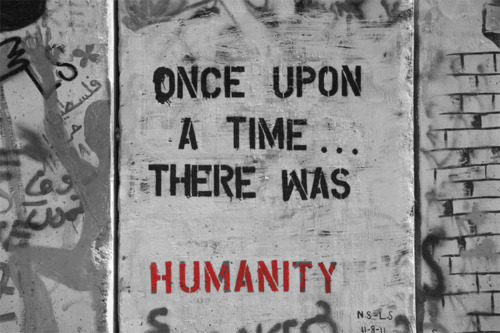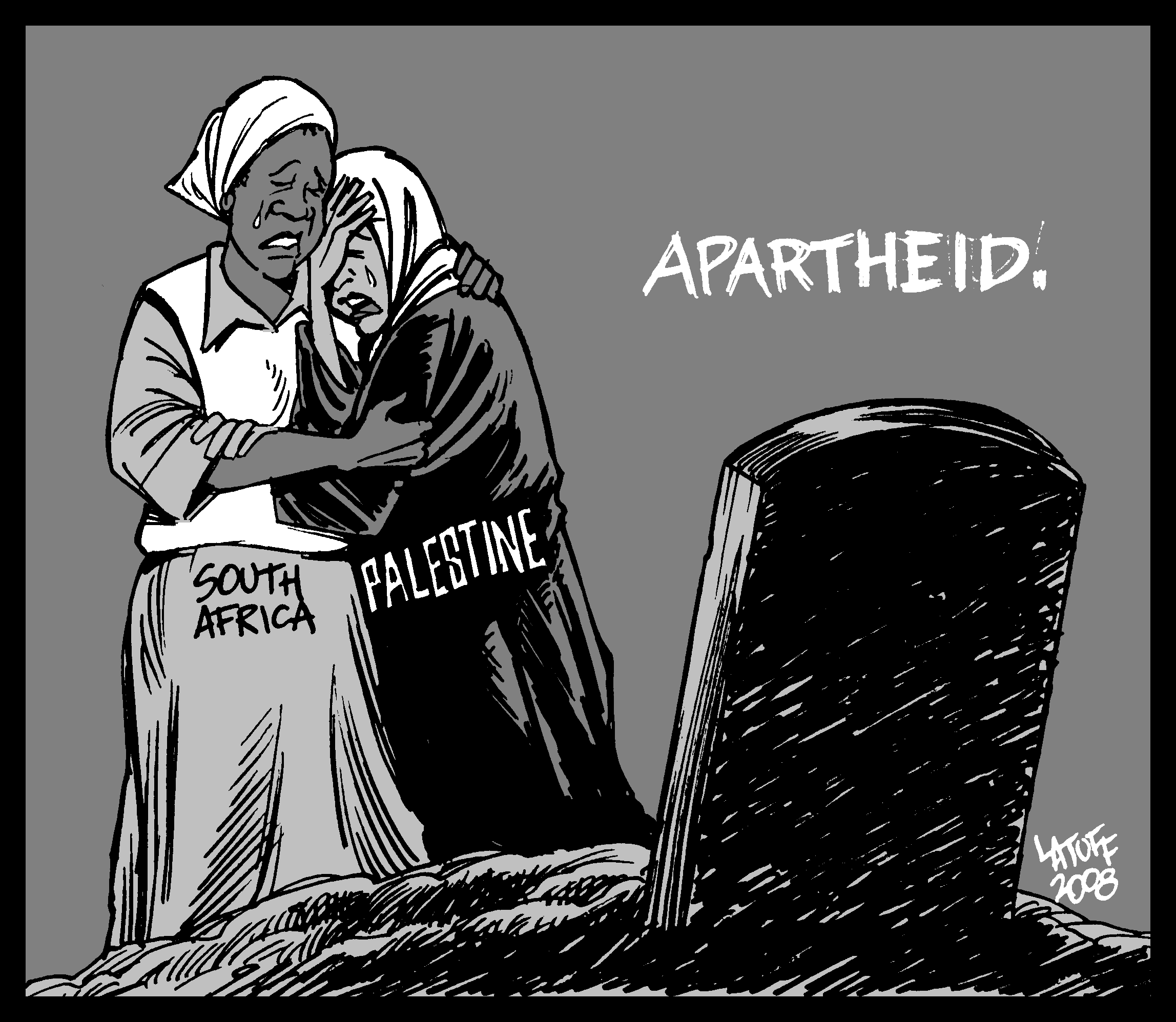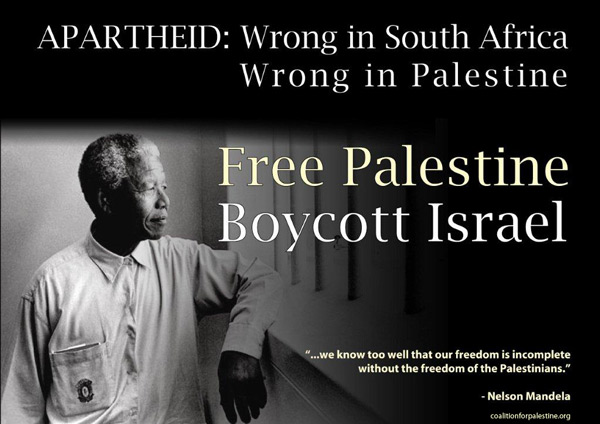I have to admit that as much as I love living in Palestine (and I REALLY love living in Palestine!), there are days when I selfishly wish that I had just remained ignorant of the injustice here. There are times when all I want to do is crawl in a hole and never hear another word about apartheid, occupation, or international politics ever again. Sometimes, it just hurts too much. Sometimes, it's just too overwhelming. Sometimes, instead of motivating me, it cripples me.
Some days, I see the tangible results of my efforts here - one more family can pay their medical bills, or send their kids to school, or have food to eat that evening - and I feel like what I'm doing is making a difference. Other times, I feel like I'm not doing nearly enough. If I can't change the world, then what's the point of trying? What's the point of helping people survive from one miserable day to the next if I'm not working to change their circumstances. I am just one person. I cannot end this occupation, and when you get down to it, that is the root of the problem. Things will not, CANNOT, substantially improve until the occupation has ended. And therefore, if I'm not helping to end the occupation, then am I just wasting my time?
I cannot offer a short-term solution, send up a two second prayer that things get better, and move on. I must work for justice, because my humanity is tied in with your humanity. And your humanity is tied in with the humanity of the boy down the street. And all of our humanity is tied in with the rest of the world's humanity. If the humanity of those living in Palestine is being ignored and undermined, then my own humanity is undergoing the same treatment. All of humanity suffers with the oppressed - consciously or not.
Earlier today I was catching up on
my friend Courtney's blog and saw a quote that totally articulates these hard moments:
“Adventure is a path. Real adventure – self-determined, self-motivated, often risky – forces you to have firsthand encounters with the world. The world the way it is, not the way you imagine it. Your body will collide with the earth and you will bear witness. In this way you will be compelled to grapple with the limitless kindness and bottomless cruelty of humankind – and perhaps realize that you yourself are capable of both. This will change you. Nothing will ever again be black-and-white.”
–Mark Jenkins
"Limitless kindness and bottomless cruelty;" this is what I'm experiencing here in Palestine.
Today, the cruelty so overshadows the kindness that I struggle to remember a time when I wasn't frustrated, brokenhearted, and exhausted; I have given all that I have, and I am completely spent, totally drained. Today, as I walk past packs of soldiers, teenagers with machine guns, all I can see is the occupation and the pain that comes along with it. Today, as I walk along the wall, all I can feel is claustrophobic, caged; I feel like a prisoner.
But tomorrow will be different.
Tomorrow, I will remember the kindness of people - on both sides of the wall. Tomorrow, I will begin again, working for peace in my own small way, one family at a time. Tomorrow, I will be able to appreciate the beauty of this place, despite the suffering that is happening here.
But today... today, I just can't, and here are a few reasons why:
 |
Israeli soldier aims his gun at Palestinian civilians in the old city of Hebron.
|
 |
| Two 10 year old students were shot by Israeli forces during class in a United Nations school in Gaza. |
 |
| Israeli soldiers come to oversee the demolition of a Palestinian family's home in the West Bank. |
 |
| Israeli soldier shooting at school children in the West Bank city of Hebron. |
 |
| "Haaretz [Israeli news source] found that dead babies, pregnant women, mothers weeping on their children’s grave, a child in the crosshairs of a sniper’s rifle and blown-up mosques are just a few of the images with which IDF soldiers decided to mark their graduation from a training course or tour of duty... |
The Haaretz inquiry brought several examples of such prints: An infantry snipers’ T-shirt with the writing “better use Durex” running alongside a dead Palestinian child, a weeping mother and a teddy bear; another sniper course shirt showing an aim taken at the belly of a pregnant woman, with the slogan “One shot, two kills;” a shirt from the Haruv battalion with the picture of a Samurai and the caption “we won’t chill before we verify the kill,” and many more."
 |
| A mother trying to shield her children from the crosshairs. |
 |
| Cattle grates used to herd people into the checkpoints. |
 |
"Ich bin ein Berliner" ("I am a Berliner") is a quotation from a June 26, 1963, speech by President JFK in West Berlin. He was underlining United States support for West Germany, 22 months after the Soviet-supported East Germany erected the Berlin Wall as a barrier to prevent movement between East and West.
That wall fell. This one will too. |

Sometimes, I wonder if I'll ever be able to piece my heart back together again.





















